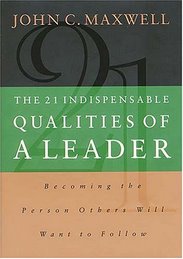I just entered a new venture in my career as a senior consultant, and my new project manager gave me this awesome book to read, "Beyond Bullsh*t", i was so impressed by the book that i wanted to write my experience and some key highlights from the book for my readers.
The book starts with "Management Politics is like a sea gull" it will glide by you so smoothly that you won't even notice when you go trapped in it. Bullsh*t has become a second nature in professional work environment. A simple concept is coated with petals and color using high-tech features in presentation to make it look attractive. A cake is a cake, you can spend 1 hr or 10 hrs to make it; it will still be a cake.
A "positivistic" work culture makes it even more difficult to keep track of bullsh*t directed your way. Truth-finding contrast sharply with what gets accomplished with bullsh*t. Bullsh*t entails on-sided, buyer-beware advocacy.
All of us have personal motives and aspiration each day, however we bullsh*t it and twist it to the organization benefit to promote our future growth. Because stating your true goal will lead you to "Hell's Kitchen."
Why not one follows "straight talk" culture, i can bet 90% of us don't even know what it means. So here is my two cents on what "straight talk" is all about? Inner integrity is important to straight-talk. One cannot preach the gospel if they don't believe in it. Straight-talk relationships are concerned with the self-interested pursuits and well-being for the people they want to persuade. Straight-talk has a moral/ethical non-conspirational nature.
Straight-talk is more rigorous than truth-telling. While there are many reasons to tell the truth, there's only one underlying reason for straight-talk: self-and other-integrity. Truth-telling entails power-taking; in contrast Straight-talk entails power-sharing.
As my project manager says "So you done talking, where's the action," the next section talks about the techniques that one can use to master straight-talk.
The technique of “I-SPEAK,” it sounds so easy and natural but little more practice to master. “I-speak” is remarkable in its ability to let other know that what you are saying reflects what you, idiosyncratically, think. At the same time, it clearly implies that they may think something quite differently-and have every right to do so.
I-speak implies that your thoughts are the product of personal experiences, life lessons learned, and acquired wisdom. My mother has always be a straight shooter, she lays the facts directly which correlates to TRUTH-telling in this blog. Though she is right, it has always had a very minimal positive response from my side, and has always been one-sided accountability. In contrast my father uses the “I-SPEAK” technique to get this point across and that had tremendous impact on me as it would always leave room for me to express my opinion and avoid the win-lose right-wrong argument. It implied a relationship of equality and a commitment to fair play.
Mr. Samuel Culbert summarized “straight-talk,” in his book Beyond Bulls*t as communication, in word and action, on a variety of agendas, in which self-interested parties seek to truthfully represent their views, with genuine concern for the agendas and well-being of others and collateral concern for the impact on the organization. Straight-talk is not on-time conversation. It’s not simply a candid spontaneous discussion. Rather it is a candid encounter in the context of a reciprocally supportive and caring relationship.
When it comes to straight-talk relationship is king. People live dynamic lives, people change as circumstances changes, to keep the straight-talk intact you need to keep yourself current and invest your energy in it. If you want to know what you said, you need to ask the other person what he or she heard. Straight-talk can be either a blunt and factual statement or it could be political correct statement. It all depends on the relationships that exist between the two parties. Timing is a key in straight-talk, when you communicate the message to person make have a positive or a negative impact to their self-esteem.
A positive relationship with the boss is way more important that pay, assignment, creative opportunities, even better is a mentoring relationship and to add icing on the cake would be a straight-talk relationship. Interpersonal chemistry, trust, and loyalty that determine the level of candor possible in a boss-subordinate relationship.
Never expect people to say the absolute truth in straight-talk as they are not required to. Straight-talk relationships have an efficiency everyone finds attractive. Operating with minimal need to hide self-interests allows you to get quickly to the point.
Straight-talk is only recommended with people who have the capacity and inclination to follow through and reciprocate. In many ways this is the mirror image of what is required of you. The easiest and least risky time for straight-talk is when someone else initiates it.
Three aesthetic qualities that will enhance the ability to engage straight talk relationship are: genuine interest in knowing about the personal lives of people you meet, greeting people with an open heart, non-collusive style of loyalty.
On a closing note, I wanted to share with you all the new buzzword in the industry “mokita”- it means the truth everyone knows but no one speaks.
4 Tips to Staying Organized as an Office Manager
-
Some people love to organize, while others take a more lackadaisical
approach to their home and professional lives. Regardless of your natural
organization...
7 years ago



